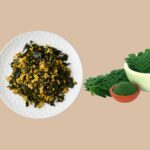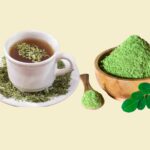As we all know, the power of food, fitness, and family in our lives is undeniable, but have you ever considered the crucial aspects of that smell food fitness family?
Our sense of that smell food fitness family is an intricate system directly linked to our emotions, memories, and overall well-being.
Understanding the complex interplay between our sense of smell and these fundamental pillars of our lives can uncover new and exciting ways to enhance our well-being and lead more fulfilling lives.
Professionals review our articles to ensure the accuracy of the content.
Table of Contents
What s That Smell Food Fitness Family
This blog post explores this fascinating topic and discovers the connection between ‘what s that smell food fitness family’
The Power of Smell
Our sense of that smell food fitness family is a remarkable sense that often goes unnoticed daily. Yet, it plays a significant role in shaping our experiences and influencing various aspects of our lives. From the enticing aroma of a freshly baked pie to the refreshing scent of a morning workout, the smell profoundly impacts our relationship with food, fitness, and family.
Influence of smell
While we may not always know it, the smell can shape our choices, preferences, and interactions. It is intimately connected to our taste buds, affects our appetite, and even plays a role in our emotional bonds with our loved ones. Understanding the science behind smell can help us harness its potential to lead healthier and more fulfilling lives.
The Science of what’s that smell food fitness family
How Does the Sense Works?
The sense of smell begins with detecting odor molecules in the air. These molecules enter our nasal passages, where specialized cells called olfactory receptors recognize them. These receptors send signals to the brain, initiating a cascade of processes allowing us to perceive and interpret smells.
The Connection between Smell and Taste
Did you know that taste and smell are closely intertwined? Food smells play a crucial role in our perception of taste. When we chew food, volatile compounds are released, stimulating our olfactory receptors and enhancing our sensory experience. This connection between smell and taste explains why a stuffy nose can make food taste bland.
The Role of Olfactory Receptors
Our nasal cavity contains millions of olfactory receptors, each specialized in detecting specific odor molecules. These receptors are incredibly sensitive and can distinguish many smells, from the fragrant bouquet to the pungent aroma of ripe cheese. They contribute to our ability to identify and differentiate scents.
How Signals Are Processed In The Brain
Once olfactory receptors detect odor molecules, the information is transmitted to the brain’s olfactory bulb, where smell signals are processed. This intricate system allows us to recognize and associate smells with memories, emotions, and behaviors.
The Impact of Smell on Food Choices
The Relationship between Smell and Appetite
Food smells play a crucial role in stimulating our appetite. Food smells trigger the release of saliva and digestive enzymes, preparing our bodies for the intake and digestion of nutrients. It explains why the whiff of a delicious meal can make our mouths water and increase our desire to eat.
Food Preferences
Have you ever noticed how certain smells make your mouth water while others may instantly repel you? Smell influences our food preferences by evoking positive or negative associations. For example, the aroma of freshly baked bread might evoke warm memories and create a desire to indulge. At the same time, the smell of spoiled food acts as a warning signal to avoid potential harm.
The Role of Smell in Flavor Perception
The flavor is not solely determined by the taste buds on our tongues. Smell significantly contributes to our perception of flavor. The olfactory receptors in our nose detect volatile compounds released by food, adding depth and complexity to our sensory experience. That’s why a congested nose can greatly diminish our ability to enjoy the taste of a meal fully.
The Influence of Smell on Cravings
Our sense of smell can trigger powerful cravings for specific foods. Certain smells can evoke memories or associations with pleasurable experiences, leading us to desire those foods. For instance, the aroma of freshly brewed coffee in the morning can become a strong cue that signals the start of a productive day.
Enhance The Dining Experience
Restaurants and chefs understand the influence of smell on our dining experience. They carefully craft dishes that stimulate our olfactory senses, creating a multisensory adventure beyond taste. A well-balanced blend of aromatic herbs and spices can elevate a dish, making it a memorable and delightful culinary experience.
How That Smell Food Fitness Family Impact Exercise Performance
Energizing Scents for Workouts
Certain scents have the power to invigorate and energize us during exercise. Peppermint, citrus, and eucalyptus are known for their refreshing and stimulating properties. Inhaling these scents before or during a workout can help boost focus and motivation, allowing us to perform at our best.
Aromatherapy and Exercise
With immense health benefits, Aromatherapy can also benefit our fitness routine. Essential oils, such as lavender or rosemary, have been used for centuries to enhance relaxation or mental clarity. Incorporating these scents into our exercise environment can create a more enjoyable and rewarding workout experience.
The Psychological Effects On Physical Activity
Smell and Motivation
Smell has a profound impact on our motivation to engage in physical activity. The right scent can be a powerful cue, signaling the brain to associate exercise with positive emotions and rewards. By creating a pleasant olfactory environment, we can cultivate a mindset that embraces and looks forward to physical activity.
Using Smell to Enhance Endurance
Endurance athletes often use smell to their advantage. Certain scents, like vanilla or jasmine, have improved endurance performance by reducing perceived exertion and fatigue. Inhaling these fragrances during prolonged exercise can extend the duration and intensity of our workouts.
The Impact of Unpleasant Smells on Exercise
Conversely, unpleasant smells can have a detrimental effect on our exercise routine. Foul odors in the gym or workout environment can create discomfort, distract from the task, and decrease overall enjoyment. Ensuring a clean and odor-free exercise space is crucial for maintaining focus and motivation.
Emotional Well-Being
The Link between Smell and Emotions
Smells have a unique ability to evoke emotions and memories. The olfactory system is closely connected to the brain regions responsible for processing emotions, such as the amygdala and hippocampus. This connection explains why a certain scent can transport us back in time, elicit feelings of nostalgia, or even influence our current emotional state.
Studies have shown that some scents, like peppermint and citrus, reduce fatigue and increase alertness, which improves fitness levels. It can be used as an aromatherapy, a pre-workout supplement, or a diffuser.
In addition to boosting energy levels, scents like Lavender and Chamomile also promote relaxation and reduce stress, making them beneficial for post-workout recovery and overall health. It enhances relaxation and focus in yoga and meditation practices.
Sandalwood and frankincense essential oils are commonly used in aromatherapy for their grounding and calming properties, promoting mindfulness and mental clarity.
Aromatherapy for Relaxation and Stress Reduction
An occupational therapist uses aromatherapy as a natural relaxation and stress reduction method. Scents like lavender, chamomile, and ylang-ylang are known for their calming properties. They can help alleviate anxiety and promote a sense of tranquility. Incorporating these scents, such as diffusers or scented candles, into our daily routines can create a soothing environment.
Using Smell to Enhance Mood and Mental Clarity
Certain smells have the power to uplift our mood and enhance mental clarity. Citrus scents like lemon or grapefruit are often associated with freshness and vitality. Inhaling these scents can help increase focus, boost productivity, and improve our overall mental well-being.
How That Smell Food Fitness Family Work For Emotional Healing & Bonding
Scents can also be used to foster emotional healing and strengthen bonds within the family. Familiar smells, like those of a loved one or a favorite home-cooked meal, can evoke comfort and security. Incorporating these scents into therapeutic practices or creating rituals centered around smell can promote emotional healing and enhance familial connections.
Read This: 11 Surprisingly Hydrating Fruits To Keep You Refreshed This Summer
Family Dynamics
The Power of Familiar Scents in Building Relationships
Familiar scents play a vital role in shaping our relationships with family members. The scent of a parent, sibling, or significant other can create a sense of intimacy and belonging. This unique olfactory imprint becomes intertwined with our memories and experiences, reinforcing our bond with our loved ones.
Creating Family Traditions through Scent
Scent can be a powerful tool for creating and preserving family traditions. Whether it’s the aroma of a special holiday dish or the scent of a particular flower associated with a meaningful celebration, these smells become part of our family’s collective memory. They create a sense of continuity and identity, strengthening the bonds between generations.
Family Smell: Strengthening the Family Bond
Family Smell – that triggers vivid memories can be a scent of a childhood home, a favorite meal cooked by a parent, or even the familiar aroma of a family pet can instantly transport us back in time. Sharing these olfactory memories with our loved ones strengthens the family bond and helps preserve and pass down cherished traditions.
Using Smell in Family Therapy and Communication
Family Smell can also be a therapeutic tool in family therapy and communication. Essential oils or scented objects can anchor relaxation, promote open dialogue, and facilitate emotional expression. Incorporating family smell into therapeutic practices can create a safe and supportive space for families to navigate challenges and strengthen their relationships.
The Dark Side Of That Smell Food Fitness Family
Olfactory Disorders and Their Impact on Mental and Emotional Health
Unfortunately, not everyone enjoys the full benefits of a functioning sense of smell. Olfactory disorders, such as anosmia or hyposmia (the inability or reduced ability to smell), can significantly impact mental and emotional well-being. The loss or alteration of the sense of smell can lead to feelings of isolation, frustration, and even depression.
Consequences Of A Decreased Sense Of Smell
Changes in Appetite
Individuals with a decreased sense of smell may experience changes in appetite and food preferences. The lack of olfactory stimulation can diminish the enjoyment of meals, reducing appetite and potentially affecting overall nutrition.
Nutritional Deficiencies
A diminished sense of smell can decrease interest in food, leading to a higher risk of nutritional deficiencies. Individuals may only become more motivated to maintain a balanced and nutritious diet if they fully appreciate the flavors and aromas of different foods.
Social Isolation
Smell plays a significant role in social interactions, and a decreased sense of smell can lead to feelings of social isolation. The inability to detect or appreciate pleasant scents can create a barrier to forming connections with others, impacting the quality of relationships and overall health.
Reduced Safety Awareness
The smell is an important safety mechanism, warning us of dangers such as spoiled food, gas leaks, or smoke. A compromised sense of smell can reduce awareness of these hazards, putting individuals at higher risk of accidents or health issues.
Depression and Anxiety
The loss of the sense of smell can have a profound psychological impact, leading to an increased risk of depression and anxiety. The loss of an important sensory experience can cause grief, frustration, and a sense of disconnection from the world.
Reduced Quality of Life
A diminished sense of smell can significantly impact an individual’s quality of life. From the loss of enjoyment in daily activities to the challenges in social and emotional well-being, it is important to address and support individuals with olfactory disorders.
Read This: 11 Low Carb High Protein Soup Recipes
Food Choices
The Influence of Smell on Taste Perception
The sense of smell has a profound influence on our perception of taste. The aromas of different healthy foods play a crucial role in creating a multisensory experience that enhances our enjoyment of flavors. Without smell, our taste buds can only detect basic sensations like sweet, sour, salty, and bitter, significantly limiting our culinary experiences.
Cravings and Food Aversions Triggered by Smell
Smells have the power to trigger intense cravings or aversions for specific foods. The scent of freshly baked cookies or a sizzling barbecue can evoke strong desires. At the same time, unpleasant odors can instantly turn us away from certain foods. Understanding these triggers can help us make informed food choices and navigate cravings more effectively.
Smell and Food Enjoyment
The aroma of food sets the stage for a pleasurable dining experience. The olfactory cues of a well-cooked meal can create anticipation, heightening our enjoyment and satisfaction. By paying attention to the strong smelling food, we can cultivate a mindful eating practice that enhances our overall appreciation of meals.
The Role of Smell in Food Intake Regulation
The sense of smell also plays a role in regulating our healthy food intake. The aroma of healthy foods activates the satiety signals in our brain, signaling when we’ve had enough to eat. In contrast, a diminished sense of unhealthy foods smell may result in reduced satiety signals, potentially leading to overeating and causing to destroy your weight loss efforts, making it difficult for you to lose weight.
The Sense Of That Smell Food Fitness Family And Physical Activity
Smell’s Impact on Exercise Performance and Endurance
The smell can significantly impact our exercise performance and endurance levels. Certain scents can invigorate us, boost our energy, and improve our focus during workouts, enhancing our overall physical performance.
The Influence of Smell on Perceived Exertion
Smells can also influence our perception of exertion during physical activity. Pleasant scents have been shown to reduce the perceived effort, making exercise feel easier and more enjoyable. Conversely, unpleasant smells can create a sense of discomfort and increase the perception of effort, potentially hindering our performance.
Using Pleasant Scents to Boost Energy and Motivation
Harnessing the power of pleasant scents during exercise can help boost our energy levels and motivation. Inhaling energizing aromas, such as citrus or mint, can create a sense of freshness and alertness, encouraging us to push through challenging workouts and achieve our fitness goals.
Avoiding Unpleasant Smells in Exercise Environments
Creating a pleasant exercise environment by minimizing unpleasant smells is crucial for a positive and effective workout experience. Proper ventilation, cleanliness, and air purifiers help eliminate odors that may be distracting or off-putting, allowing us to focus on our fitness journey.
Conclusion What S That Smell Food Fitness
The sense of smell is an integral part of our daily routine, influencing our food choices, performance in physical exercise, family dynamics, and overall well-being.
However, the sense of smell has both positive and negative sides. Therefore, it’s important to remain aware of its power and potential impact on our health.
By acknowledging and appreciating the role of that smell food fitness family in our lives, we open ourselves up to a world of sensory experiences that can transform how we approach food, fitness, and family dynamics.
Let us embark on this olfactory journey and embrace the power of smell to create a harmonious and fulfilling life.
Reference
The importance of the olfactory system in human well-being, through nutrition and social behavior
Respiration Modulates Olfactory Memory Consolidation in Humans
















